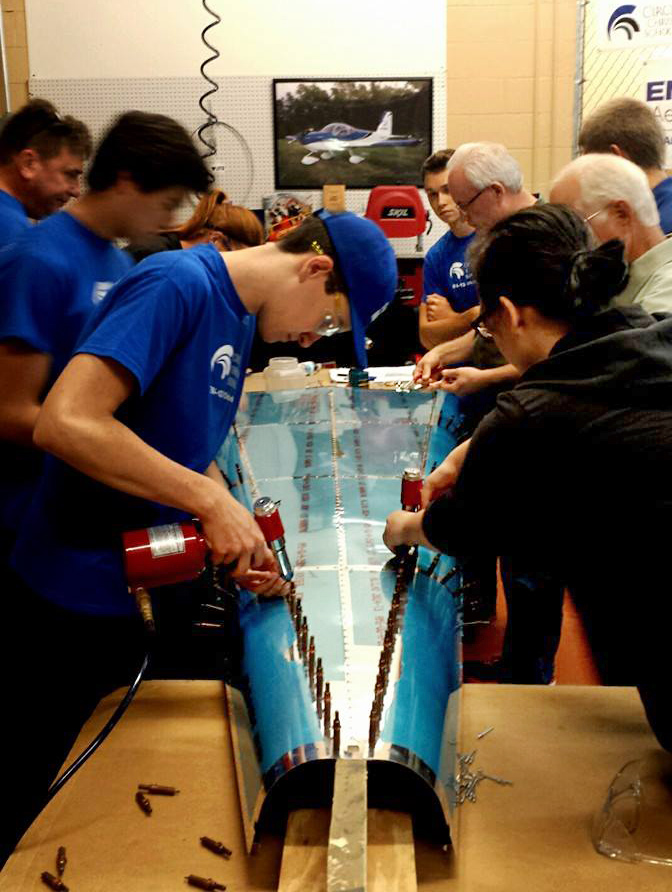AOPA high school scholarship winner solos
Florida high school senior David Lyon was surprised by his flight instructor when he was asked to produce his logbook on the downwind leg for Runway 25 at Orlando Executive Airport. “I’ll always remember that moment,” Lyon said, when John Parsons requested he dig out his paperwork. “He signed my logbook and pilot endorsement in the air” and then cut Lyon loose for his solos after the pair taxied to the ramp.
“He hopped out and asked me if I had any final questions, and I didn’t, so I grabbed the weather information and asked the tower if I could take off at Runway 31 because the winds were more favorable” for that runway. Lyon had to wait about 15 minutes for traffic sequencing—a nail-biting delay that would rattle most student pilots.
With a little over 25 hours of dual flight, the AOPA High School Aviation Initiative Flight Training Scholarship winner added “solo flight” to his logbook Jan. 28.
 Lyon spent most of his pre-solo time in a Van's Aircraft RV-12 Eagles Nest aircraft that he and other students helped build in 2016. Applying the science, technology, engineering, and math (STEM) concepts that he learned during construction helped Lyon better understand how airplanes operate and ultimately gave him a leg up on other flight students.
Lyon spent most of his pre-solo time in a Van's Aircraft RV-12 Eagles Nest aircraft that he and other students helped build in 2016. Applying the science, technology, engineering, and math (STEM) concepts that he learned during construction helped Lyon better understand how airplanes operate and ultimately gave him a leg up on other flight students.
“Building an airplane is probably the best way to learn more about aviation,” Lyon said. “We learned the concepts in class, then we got to see the concepts in action as we built the airplane.” For example, understanding the design and the function of control surfaces, pitot tube operation, and instrument readouts allowed Lyon to be more comfortable in a cockpit. Math enabled Lyon to “crunch stuff out pretty easily” for descent times, glide ratios, and other figures.
The student pilot has also received college credit from Embry-Riddle Aeronautical University for participating in the RV-12 build as well as a hypothetical drone project scenario to solve irrigation leaks.
Lyon plans to use additional AOPA High School Aviation Initiative Flight Training Scholarship funds to complete his air work by the spring so he can earn his private pilot certificate by the end of May.
Though his father and his grandfather both worked in the aviation industry, Lyon wants to become his family’s first career pilot. He said he was “kind of looking more toward adventure flying as a whole” including military aviation, aerobatics, or “some type of bush piloting that is more exciting than flying from point A to point B.”
The AOPA Flight Training Scholarships are made possible by donations to the AOPA Foundation, and the awards focus on facilitating a positive flight training experience that will encourage student pilots to achieve their goals. By helping to produce new pilots, the scholarship program also strives to ensure general aviation’s future, with scholarship recipients serving as ambassadors for GA and flight training on a grass-roots level.




